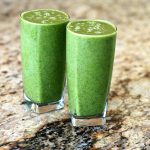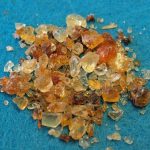Overview:
Brown rice is an increasingly popular supplement for health-conscious individuals looking for a natural source of nutrition. It has long been recognized as an important source of essential vitamins and minerals, but in recent years its reputation as a health supplement has grown.
Brown rice is a whole grain, meaning that all of its nutrients are retained during processing. It is a great source of magnesium, which is essential for maintaining healthy bones, muscles, and nerves. It also contains selenium, manganese, and zinc, which are all important for maintaining good health. Brown rice is also high in dietary fiber, which helps to reduce cholesterol levels and regulate blood sugar levels.
One of the biggest benefits of brown rice is its high level of essential fatty acids. These fatty acids are essential for maintaining a healthy heart, as they help to reduce bad cholesterol levels and help to maintain healthy blood vessels. This can help to reduce the risk of heart disease and strokes.
Brown rice is also a great source of complex carbohydrates. These complex carbohydrates are slowly digested and are great for providing sustained energy throughout the day. They also provide your body with essential vitamins and minerals, which help to keep you healthy and energized.
Brown rice is also a great source of protein. Protein is important for maintaining strong muscles, and it also helps to build and repair tissue. This makes it an ideal supplement for those who are looking to gain muscle mass. It is also low in fat, making it a great choice for those who are trying to lose weight.
Brown rice is also an excellent source of antioxidants. Antioxidants help to protect your cells from damage caused by free radicals. This helps to reduce the risk of developing certain diseases, such as cancer. Brown rice is also a great source of dietary fiber, which helps to keep your digestive system healthy and regular.
Brown rice is also a great source of B vitamins, which are essential for maintaining good mental and emotional health. B vitamins help to reduce stress and promote relaxation. They also help to produce energy and regulate mood.
Overall, brown rice is an excellent supplement for anyone looking to improve their overall health and wellness. It is a great source of essential vitamins and minerals, as well as important fatty acids, complex carbohydrates, and dietary fiber. Its high level of antioxidants helps to reduce the risk of developing certain diseases, and its B vitamins help to reduce stress and promote relaxation. For all these reasons, brown rice is an excellent supplement for anyone looking to improve their health and wellbeing.
Brown rice is a staple food found in many cultures around the world. It is an integral part of the traditional diets of many countries, including China, Japan, India, and other parts of Southeast Asia. Even so, the use of brown rice as a dietary supplement is a relatively recent phenomenon.
Brown rice is a whole grain, meaning that it has all of the bran, germ, and endosperm intact. This makes it more nutritious than white rice, which is processed and has some of the nutrients removed. Brown rice is high in fiber, B-vitamins, and essential minerals such as iron and magnesium. It is also a good source of protein, making it a healthy choice for vegetarians and vegans.
The use of brown rice as a dietary supplement began in the late 1970s. At the time, there was a growing body of research that suggested that whole grains could be beneficial for health. Researchers noted that the fiber, vitamins, and minerals found in whole grains could help reduce the risk of certain chronic diseases, such as heart disease, stroke, and diabetes.
In the 1980s and 1990s, brown rice became increasingly popular as a dietary supplement. Companies began to offer a variety of different forms of brown rice, from flakes and powders to capsules and tablets. These supplements were marketed as a way to add extra nutrition to the diet without having to cook a pot of brown rice.
Today, brown rice remains a popular dietary supplement. It is available in a variety of forms, from powders and capsules to flours and flakes. It can be added to smoothies, used to make energy bars, and added to baked goods. It can also be cooked and eaten as a side dish or used to make risotto or sushi.
Brown rice is a nutritious, convenient way to add whole grains to the diet. It is high in fiber, B-vitamins, and minerals, and can help to reduce the risk of chronic diseases. For those looking to add extra nutrition to their diet, brown rice is a great choice.
Side Effects of Brown Rice as a Supplement:
Brown rice as a supplement can have some side effects, particularly if it is consumed in large quantities. These can include digestive upset such as bloating, gas, constipation, and diarrhea. It can also cause an allergic reaction in some people, resulting in hives, itching, and swelling. People with diabetes should be aware that brown rice may cause their blood sugar to spike. Finally, some people may experience an iron overload if they consume too much brown rice, leading to fatigue and joint pain.
Summary of Brown Rice as a Supplement:
Brown rice is a popular supplement for those looking to increase their dietary fiber intake. It is a whole grain, meaning it contains all of the bran, germ, and endosperm of the grain. Brown rice is rich in many vitamins and minerals, including manganese, magnesium, and zinc. It is also a good source of dietary fiber, which helps to keep the digestive system healthy. Additionally, brown rice is a low-glycemic food, meaning that it does not cause a rapid spike in blood sugar levels. Brown rice can be used to make a variety of dishes, including curries, stir-fries, and salads. It can also be used as a substitute for white rice in some recipes. Brown rice is an easy and nutritious addition to any diet, and it is an excellent source of dietary fiber.
Frequently Asked Questions:
What is brown rice?
Brown rice is a whole grain that has only had its outer husk removed, while white rice has had both the husk and bran layer removed. Brown rice has a nutty flavor and a chewy texture and is considered to be a healthier alternative to white rice.
Is brown rice more nutritious than white rice?
Yes, brown rice is more nutritious than white rice as it contains more fiber, vitamins, and minerals. Brown rice is a good source of complex carbohydrates, vitamins B1, B3, and B6, magnesium, and phosphorus.
How does brown rice taste compared to white rice?
Brown rice has a nutty flavor and a chewy texture, while white rice has a mild, somewhat bland flavor and a soft, fluffy texture. Some people prefer the flavor and texture of brown rice, while others prefer white rice.
Can brown rice be used in the same way as white rice?
Yes, brown rice can be used in the same way as white rice. It can be used as a side dish, in salads, soups, and stews, and as a base for stir-fries and casseroles.
Does brown rice need to be cooked differently from white rice?
Yes, brown rice takes longer to cook than white rice, typically taking 45 minutes to an hour to cook. It also requires more water than white rice, usually a 2:1 water-to-rice ratio.
Does brown rice have any health benefits?
Yes, brown rice has several health benefits, including being a good source of fiber, vitamins, and minerals. It is also low in fat and free of cholesterol, making it a healthy option for people with heart disease and other conditions. Brown rice is also a good source of complex carbohydrates, which provide sustained energy throughout the day.









